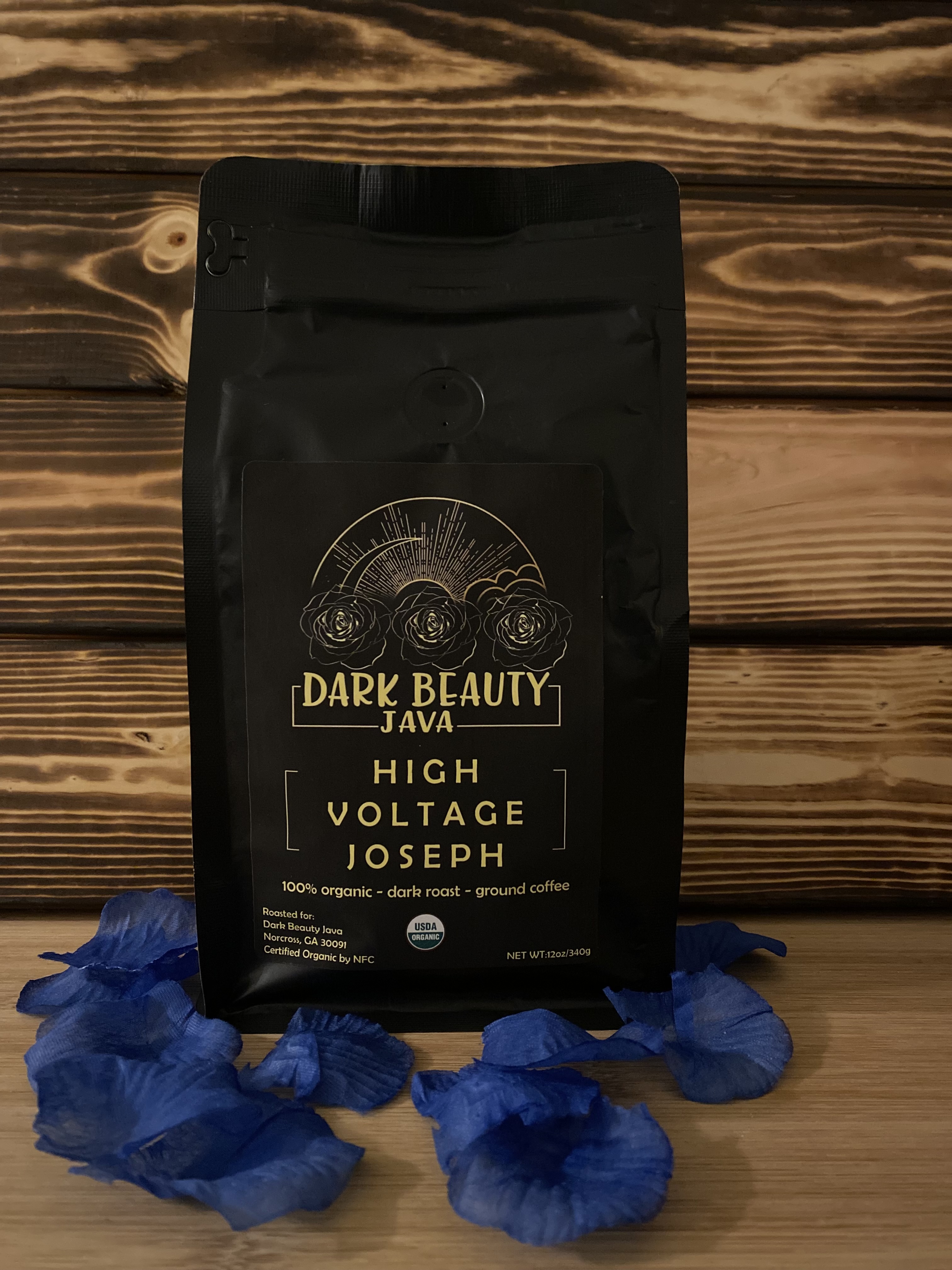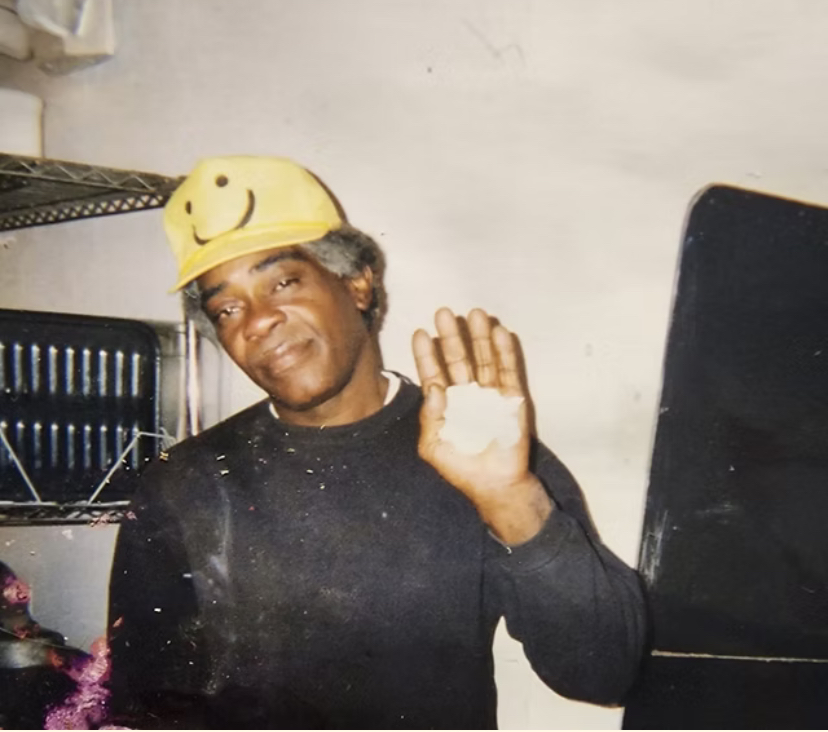 It started as a practical idea during a chaotic time. When Covid hit, Jovanna Smith had an unexpected conundrum to sort out: where did she go for her coffee every day if her favorite shops were all on lockdown? And had she been spending too much money on her daily coffee at the shops? After addressing the lifestyle change, doing a hefty amount of research, and navigating a couple of common food industry snafus, her brand was born, Dark Beauty Java. “That’s how the idea got started. It started in 2019, but I started getting into motion in 2020 when I realized that at-home coffee really is the best.” Her company aims to uplift underserved communities. “Everybody deserves great coffee, and it should be affordable for everybody as well,” says Smith, who has been a coffee fanatic ever since her first sip of Italian roast.
It started as a practical idea during a chaotic time. When Covid hit, Jovanna Smith had an unexpected conundrum to sort out: where did she go for her coffee every day if her favorite shops were all on lockdown? And had she been spending too much money on her daily coffee at the shops? After addressing the lifestyle change, doing a hefty amount of research, and navigating a couple of common food industry snafus, her brand was born, Dark Beauty Java. “That’s how the idea got started. It started in 2019, but I started getting into motion in 2020 when I realized that at-home coffee really is the best.” Her company aims to uplift underserved communities. “Everybody deserves great coffee, and it should be affordable for everybody as well,” says Smith, who has been a coffee fanatic ever since her first sip of Italian roast.
Smith is the first recipient of a grant from The Organic Trade Association’s new Small Business Access (SBA) Program. Launched in 2025, the SBA Program is part of the Organic Trade Association (OTA)’s ongoing effort to build a more resilient, inclusive organic marketplace. Designed specifically for U.S.-based farms, processors, and emerging brands with under $100,000 in organic sales, the program removes common financial and technical barriers to entry. Recipients like Smith receive a $1,500 grant to support organic certification, a three-year OTA membership, access to expert-led AMA sessions, and national visibility through OTA’s channels. Built on a community-centered model, the SBA Program also connects participants through quarterly peer calls and the ROOTS regional strategy, ensuring that support is tailored to the unique needs of organic producers across the country. By combining direct financial relief with hands-on guidance, OTA is paving the way for the next generation of organic entrepreneurs. Smith originally heard about the SBA Program through the USDA’s website, where she also found a list of organic certifiers.
Stephanie Jerger, OTA’s VP of Operations says, “Once you get the certification, the other part of the business is unlocked. We also do help recipients tap into our peer network in this program.”
Navigating the food industry as a small business owner

Smith says the SBA Program has been incredibly helpful in helping her navigate her business in the retail food space as a small business owner. Smith says the knowledge and the meetings have been tantamount to the grant award—maybe even more valuable. “That, to me, is more beneficial than the grant.”
Smith says the program eases her mind because she knows she has quick and easy access to industry-specific knowledge and resources targeted specifically to emerging small business owners.
“If I have a problem I can always say, ‘Hey, Stephanie, can you please help me with this?’ or ‘Hey, Danielle, what's going on here?’” she says, referring to Jerger and Danielle Cote, OTA’s Membership Engagement Manager.
Another key advantage of the program, says Smith, is being able to serve on the OTA Councils, where she feels hopeful because “my little small business is actually in rooms with these [top companies].”
Certification
The challenges that Smith initially faced in getting certified organic highlight a need for better access to organic certification for small businesses. When asked about the barriers she faced, Smith replies, “Plenty. I was doing all of this research trying to figure out how to get started. I saw huge numbers that I didn't think I could ever meet. I had spent so many days just confused just not even knowing who to reach out to.”
Jerger says that people often find the SBA Program by word of mouth. “I’m really glad to see certifiers pushing people towards us,” she says. Many times, she says, people seeking out the grant program are like Javonna: overwhelmed and suffering from information overload. Jerger says one of the many assets to being an SBA program grant recipient is that many certifiers know of the SBA Program, especially the quality controllers (QCs) OTA works with.
Organic certifiers currently do not exist in Alabama, which added an extra hurdle for Smith to navigate. The closest state to Smith that certifies is Florida; OTA’s SBA Program aims to close that gap.
Currently, Dark Beauty Java is sold online only, but Smith’s long-term goal is to do the coffee roasting in her hometown of Birmingham, Alabama, where she is currently based. “I'm doing organic coffee for all of the local mom and pop shops. So that way, we can have a broader variety of organic.” She’d love to be a coffee roaster across the entire state of Alabama, but she says it must begin in Birmingham. “Birmingham has shown me so much love. So, we're definitely going to stay in Birmingham.”
The journey to organic
Smith says she was initially drawn to organic as a matter of both principle and taste.
“If my name is behind it and my brand and logo are on it, it's gonna be great.” Smith doesn’t mince words when it comes to organic: “It has to be right if I drink coffee, so you're not going to just bring me any old kind of coffee now that I know what organic tastes like.”

Jerger says conventional land transitioning to organic—particularly in the southeast of the United States—could explain part of the reason for the initial challenges in getting Dark Beauty Java on the market. In Smith’s case, the SBA Program was able to help find Smith a co-packer and even a shared kitchen space. “A lot of small brands will need to start out this way,” says Jerger. “But it’s very hard to get something that is an exclusively organic space, which is one of the aspects OTA will focus on in finessing the program next year—in addition to developing new resources to distribute to small business owners.”
Dark Beauty Java will remain online for now, says Smith. However, her long-term goal includes having a coffee roasting plant in Alabama, so that she can supply all of the businesses there with “the best organic and affordable coffee and make it accessible to everyone.” She is even exploring the idea of becoming an organic certifier in Alabama one day.
The best advice Smith has for a new or emerging small business launching a brand is not to give up. “I don't care if they say you need a million dollars. Well, you'd better take the steps. Just research.” Smith says if she had given up, she never would have gone on the USDA website, where she found the SBA Program that has helped her thrive in her newfound success as an emerging small business owner.
“So, don't give up. Just keep going. Believe in your brand,” says Smith.
